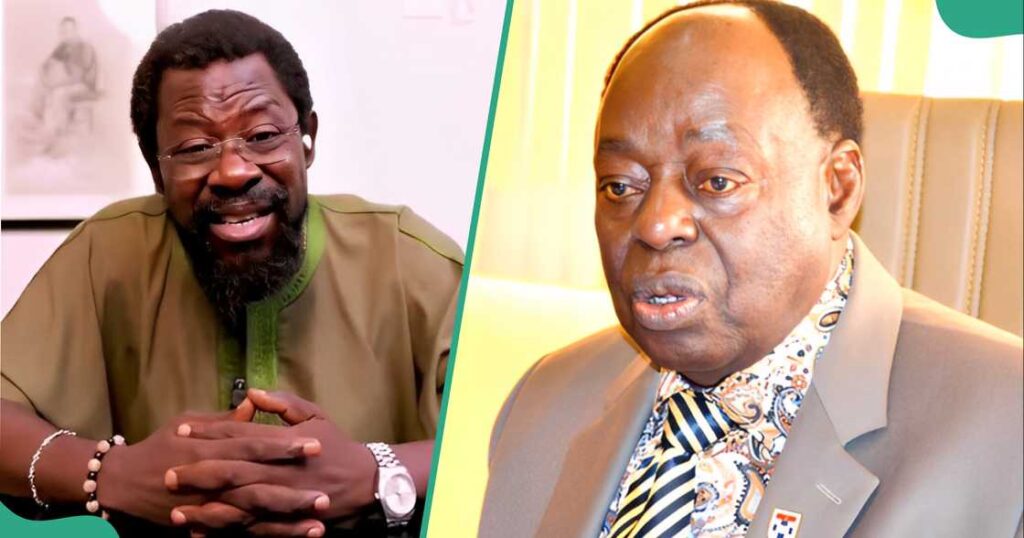
By Owei Lakemfa
The Minister of Labour and Employment, Dr Mohammed Maigari Digyadi, does not appear to have any idea why the Ministry exists. It is also possible that the Tinubu administration that appointed him has no clue why we have a ministry that takes care of both labour and employment.
The Ministry was created 85 years ago. The unemployed registered with it in employment exchange locations which helped secure employment. Dr Timiebi Koripamo-Agary, one of the most cerebral Permanent Secretaries in our history, transformed this exchange into the Nigerian Electronic Labour Exchange. After independence, the Ministry also sent Nigerian labour to countries like Equatorial Guinea. Until today, under the Labour Act, it is the Ministry that issues recruiters licence.

It also created jobs and trained the unemployed in various skills to enable them become self-employed and employable. The Ministry has an arm, the National Directorate of Employment, NDE, with the motto: JOBS FOR ALL. The NDE which receives annual budgetary provisions, states that its primary objectives are “…providing sustainable employment opportunities for Nigerians (and) creating opportunities for sustainable employment through various programmes.” Specifically, under the Ministerial supervision of Digyadi, the NDE on its official site states that in line with President Tinubu’s Re-newed Hope Agenda, it is strengthening “…its role in combating poverty by providing sustainable employment opportunities for Nigerians.”
So, you can imagine the shock when Minister Digyadi declared on November 28, 2024 that job creation is not part of the Ministry’s mandate. He told Nigerians: “You will agree with me that the mandate of the Federal Ministry of Labour and Employment is never to give employment to people…As you are aware, the Ministry is not there to provide employment, because the former Minister of Youths and Sports (Sunday Dare), before he left, was asking me to give him jobs. I said we only create the environment for jobs. We don’t give jobs.”
It is clear Minister Digyadi is not conversant with the mandate of the Ministry. If he was not given the correct orientation, it might mean that the Tinubu administration does not know better. As it is, the Ministry is a bird flying with one wing. Also, what many Nigerians may not know is that their elites have turned basic economics upside down, forcing it to walk on its head. For instance, economics teaches that the basic factors for siting an industry includes availability or proximity of raw materials, land, water, labour, capital, power, transportation and nearness to market. All these factors are in favour of the Dangote Refinery.
Also, compared to foreign refineries, it sources local crude and, does not need to pay for freight, insurance, cargo discharge, demurrage, storage, port fees, NIMASA charges and Custom duties. Additionally, it has other derivatives from the crude it processes, including gasoline, kerosene, lubricating oils and bitumen.
Given these objective factors, the cost of a litre of locally produced fuel should be quite cheap. But it is an average N1,100 compared to, say, war-torn Libya which is N50 per litre. The Nigerian cost is so high that imported fuel is far cheaper. The Dangote refinery, afraid that Nigerians would, naturally, buy the cheaper imported fuel, went to court demanding that the licenses issued to six private oil companies to import fuel must be voided. Even when the NNPC claims that the public-owned Port Harcourt Refinery is now functional, its price range is same as Dangote which gives the impression that there is a price-fixing cartel at work.
Nigerians also do not know the exact shares they own in the Dangote refinery nor understand the role of the Tinubu administration. For instance, in July, 2024, it instructed the NNPC to engage Dangote and other local refineries and resolve their disputes, including selling crude to them in Naira. Then some weeks later, the same administration issued a statement stating that the: “PMS regime, has been deregulated. Dangote is a private company. NNPCL should not forget it’s a limited liability company. Whatever controversy both of them are having is their problem…It’s the consumer who benefits if a price war starts, if NNPC fuel is too much, the public market can go to the market and bring in their fuel and sell at the price that they think is very reasonable and profitable for them.” So, many Nigerians do not know if the Tinubu government is for or against intervention.
There are also cobwebs surrounding the claims by Chief Afe Babalola, SAN, that a younger lawyer, Dele Farotimi, defamed him in a book on the judiciary. For this, the police had invaded Farotim’s chambers, assaulted his staff, threatened two of his lawyers with guns and, virtually abducted the lawyer. Farotimi was first dragged in handcuffs before a Magistrate Court in Ado Ekiti, Chief Babalola’s hometown where he is so powerful that a special Afe Babalola Day has been reserved annually to honour him. The Magistrate denied Farotimi bail.
Later, Inspector General of Police Kayode Egebtokun had Farotimi brought from prison to an high court to face new charges, this time for alleged cybercrimes. Bail was granted in this case which Farotimi has not perfected. Then while still being held in prison, Babalola and his supporters hauled Farotimi before courts in Abuja, Ibadan and Port Harcourt. The Babalola Chambers additionally, petitioned the Legal Practitioners Disciplinary Committee to remove Farotimi from the roll of Nigerian legal practitioners. In all these, Chief Babalola refused to learn from a younger lawyer, Femi Falana, SAN, who when confronted with serious defamation, took out a civil suit rather than employ the repressive state apparatus against his accuser.
The Babalola-Farotimi drama reminds me of a story I was told as a child. Early one morning, villagers, on their way to farm and market, found the parrot tied in front of his in-law’s house. They were told the parrot had been gossiping and making disparaging comments against his in-law. Almost all blamed the parrot for his predicament. When they were returning in the evening, the villagers found that the parrot not only remained tied, but had now been put in a cage.
This time, they condemned the in-law for subjecting the parrot to torture and unbearable pain. They reminded the in-law of a Yoruba saying that: “Aseju ni Baba asete”: meaning that excessive behaviour or, anything done in excess, ultimately leads to disgrace. They said the fact that he seeks to make his case does not mean he should exhaust all the saliva in his mouth.
The villagers reminded him that if people beg the heavenly Egungun masquerade, he listens, if they beg the Orisha god, he listens and if they beg God Almighty, he forgives; so, who is he, a mere mortal to insist on a pound of flesh?




GIPHY App Key not set. Please check settings